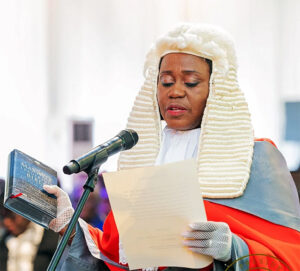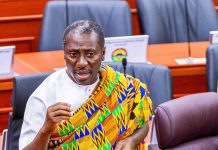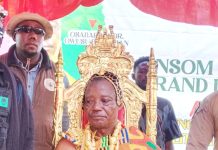The Supreme Court has shot down Dr Stephen Kwabena Opuni’s objection challenging the composition of a panel at the Superior Court hearing his interlocutory appeal.
Samuel Codjoe, counsel for Dr Opuni, on Wednesday, April 8, 2024 objected to the formation of the panel, describing it as unconditional under Section 157 (3) of the Rules of Court.

The said section reads: “Without prejudice to clause (2) of this article, no person sitting in a Superior Court for the determination of any cause or matter shall, having heard the arguments of the parties to that cause or matter and before judgment is delivered, withdraw as a member of the court or tribunal, or as a member of panel determining that cause or matter, nor shall that person become functus officio, in respect of that cause or matter, until judgment is delivered.”
He argued that his client had earlier appeared before a different panel of justices, namely Justice Mariama Owusu, Yaw Darko Asare, Emmanuel Yonny Kulendi, George Kingsley Koomson and Henry A. Kwofie on January 17, 2024.
He said the current panel of justices – Gertrude Torkornoo (CJ), Mariama Owusu, Henrietta Mensa-Bonsu, Ernest Gaewu, Yaw Darko Asare – is not the same as the original panel.
Counsel Codjoe explained that the original panel ordered the appellant to file his submissions within 21 days as well as the prosecution to file their response to same.
The original panel further ordered that if the parties have any reply they should file within seven days if any.
According to him, as soon as they filed their written submission, there was an order to appear before the panel, arguing that “In so far as the panel ordered us to appear before them, it constituted a hearing.”
Godfred Yeboah Dame, Attorney General (A-G) and Minister of Justice opposed to the objection, stating that there has not been any hearing at all of the matter and the operative words of Article 157(3) is not what counsel on the other side wanted this court to believe.
He said hearing of the matter could be written or oral, and as far as he was concerned there had not been written or oral hearing.
Dame contended that “this a panel has been properly constituted to hear this matter and my learned friend has no cause for complaint.”
The panel then raised for few minutes and returned to rule that the records did not reflect what Mr Codjoe was saying and that objection was unmeritorious and misconceived, and adjourned the case to June 19, 2024.
The Interlocutory Appeal
Dr Opuni is appealing against the entire Court of Appeal ruling that the High Court hearing his case should NOT start afresh, following the retirement of Justice Honyenuga.
The grounds of the appeal were that the judges committed an error of law when they held that the
trial high court judge exercised his discretion wrongly when he ordered the case to be started de novo.
Lawyer Codjoe argument was that the settled practice in criminal trial is that when a pending criminal case is assigned to a new judge, the judge is obliged to start the case de novo.
He contended that the settled practices of the courts can only be changed by statute. He said the panel of the Court of Appeal erred when they held that in view of the fact that the case has been on the cause list since 2018, the exercise of the trial court’s discretion to start the trial de novo was not proper, but was arbitrary, capricious, uninformed and contrary to the policy rationale of Article 296 of the 1992 Constitution.
The Court of Appeal erred when they substituted the discretion of the trial judge to start the trial de novo with their discretion.
There was also an error in law when they refused to follow the binding decision of the full bench of the Court of Appeal sitting as the Supreme Court in the case of Harlley v Ejura Farms ll977l2 GLR 179 to the effect that settled practices of the courts can only be changed by statute.
Furthermore, there was an error when the panel ordered the trial court to adopt proceedings on the grounds that the accused persons have a right to a speedy trial under the 1992 Constitution.
The ruling was in the wrong direction when the panel disregarded the effect of the observation of the demeanor of witnesses in a criminal trial. According to the appellant, the entire ruling cannot be supported having regards to the evidence.
The appellant is, therefore, praying the superior court to set aside the ruling of the Court of Appeal and restore the ruling of the trial court judge to start the case de novo.









